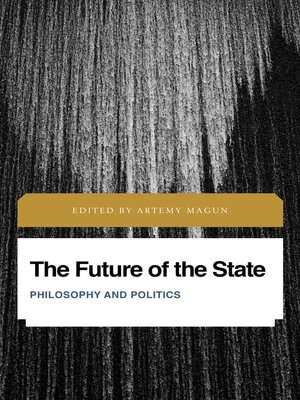The Future of the State
ebook ∣ Philosophy and Politics · Future Perfect: Images of the Time to Come in Philosophy, Politics and Cultural Studies
By Artemy Magun

Sign up to save your library
With an OverDrive account, you can save your favorite libraries for at-a-glance information about availability. Find out more about OverDrive accounts.
Find this title in Libby, the library reading app by OverDrive.



Search for a digital library with this title
Title found at these libraries:
| Library Name | Distance |
|---|---|
| Loading... |
The state has been a dominant political form, and the preferred model of political unity , for at least the last two centuries. However, many today speak of its crisis, which stems from two main factors: the state's changing role in the globalizing international system and the state's complex relation to democracy, a key normative concept of contemporary politics. Authoritarian leaders use the state to successfully reaffirm sovereignty, despite international integration; democratic movements abound but often serve only to reinforce the regimes they contest. Is there an alternative? Do we need to reconceive the phenomenon of state, with a view to the future?
These are the questions that an international group of scholars explores and answers in this groundbreaking book, drawing on the history of political thought, continental philosophy, and contemporary political examples. They engage the dialectical tradition broadly understood, including phenomenological transcendentalism, the political philosophy of French public law, and German twentieth-century political philosophy beyond Weber. The result brings the state into a critical political philosophy, providing a realistic model of what a good democratic state could and should be like.
These are the questions that an international group of scholars explores and answers in this groundbreaking book, drawing on the history of political thought, continental philosophy, and contemporary political examples. They engage the dialectical tradition broadly understood, including phenomenological transcendentalism, the political philosophy of French public law, and German twentieth-century political philosophy beyond Weber. The result brings the state into a critical political philosophy, providing a realistic model of what a good democratic state could and should be like.







